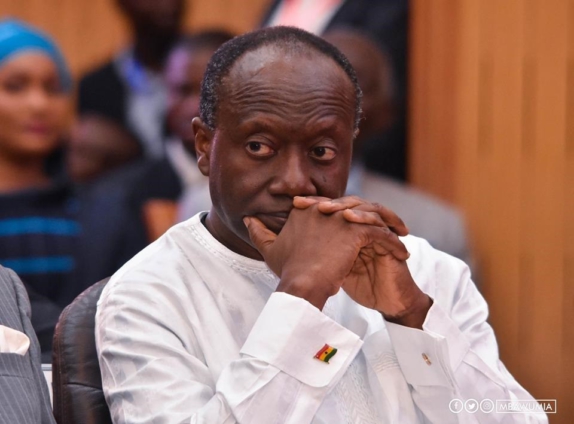
Audio By Carbonatix
Government will run a tight, low-spending budget for this year in order to reduce the pressures on the economy as a result of covid-19 pandemic, according to Databank Research 2020 Review and 2021 outlook Report.
This will however deprive spending to critical sectors of the economy such as schools, hospitals and other infrastructure.
Secondly, institutions or contractors that get big businesses from government might have to rewrite their notes.
But it is a necessary evil because of the rising debt and expenditure, which if not checked could throw away gains chalked by the economy.
At the end of September 2020, the overall budget deficit widened to 9.0% of GDP, 0.1% higher than the target and more than two times the level for the same period in 2019.
After three consecutive years of primary surpluses, the primary balance also switched into a deficit of 4.1% in nine months of 2020. This contributed to a faster growth in the public debt stock to GH¢273.8 billion (71% of GDP) as at September 2020.
“We believe fiscal consolidation is inevitable in 2021 as the public debt ratio has crossed the maximum early warning sustainability threshold of 70% for market access countries in 2020. We forecast a compression in the overall budget deficit to between 8.10% – 9.10% by full year-2021 (midpoint: 8.6%}”, Databank said.
“The legislative limit of a 5% deficit remains suspended to support a gradual withdrawal of fiscal support for economic recovery. Against the backdrop of a health crisis and economic slowdown which requires continued policy support to recover, the authorities have rightly triggered Section 3 (1) of the Financial Responsibility Act to suspend the fiscal rule. We believe the fiscal rule would remain suspended over the next 2 – 3 years as the deficit contracts steadily to below 5.0% over time”, it added.
It therefore forecast a compression in the overall budget deficit to between 8.10% and 9.10% this year.
Coronavirus shocks undermined commitment to financial discipline in 2020
Prior to the COVID-19 pandemic, the key risk to Ghana’s 2020 fiscal operations was the expenditure leading up to the December general elections.
This was evident in the original 2020 fiscal deficit target of GH¢18.9 billion (4.7% of GDP), below the 5.0% limit imposed by the Financial Responsibility Act.
However, the fiscal costs of the COVID-19 pandemic imposed an extra financing gap of GH¢25.3 billion (6.6% of GDP). This comprised of revenue shortfalls of GH¢13.4 billion (3.5% of GDP) and additional spending of GH¢11.8 billion (3.1% of GDP).
Latest Stories
-
Bringing Ofori-Atta’s photo to Parliament and displaying it was unfair – Afenyo-Markin
16 minutes -
Minority leader calls 24-Hour economy policy more PR than practical solution
26 minutes -
Afenyo-Markin accuses government of using anti-corruption drive to target opponents
39 minutes -
GPL: Kotoko announce new board of directors
48 minutes -
Minority leader challenges government’s ‘one million jobs’ claim
49 minutes -
Afenyo-Markin says entrepreneurs ‘worse off’ under Mahama, criticises GRA’s tax drive
56 minutes -
Government too focused on gold, ignoring agriculture- Afenyo-Markin
1 hour -
Livestream: Newsfile discusses the SONA, vanishing ECG credits, ‘no-bed syndrome’
1 hour -
Strategic Development or Regional Appeasement? A reflection on Ghana’s airport policy
2 hours -
Israel launches attack against Iran
3 hours -
‘He was my dorm mate’: Former Dep. GES Director settles debate over Chairman Wontumi’s Prempeh College credentials
4 hours -
Mob fury at Kasoa: Firefighters stoned as market inferno reduces shops to ashes
4 hours -
January allowances cleared: National Service Authority pays personnel across Ghana
4 hours -
MTN Ghana rings in massive GH¢7.8 bn profit as digital and fintech revenues surge
4 hours -
Government extends ‘Nkoko Nkitinkiti’ broiler initiative to schools
4 hours

